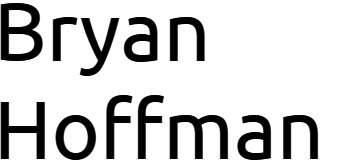I keep on running into folks who say how important the habit of writing and publishing daily has been to them, and I think: “I need to start doing that… tomorrow.” Each and every time, I realize the potential value in adopting the habit, and then rationalize it away. It’s got to stop!
Here are the tips I’ll be using as I develop this habit. Unfortunately, I don’t have the time to write and publish daily, but rest assured… I am writing each and every day.
1. Schedule time for your craft:
The takeaway on this one is that inspiration isn’t reliable, so to pick up its slack, we have to be. It’s important to schedule an allotment of time to do whatever it is you want to be doing, and stick to it. It’s okay to even accomplish nothing during that time slot, the purpose is to commit to doing nothing else during that time.
2. Understand how expectations tie into procrastination:
We want to think that we’re going to create the next awesome thing-a-ma-bob, but it takes making a lot of pretty bad things to get there. If we let our high expectations for our work keep us from producing it at all, we entertain a dangerous self fulfilling prophecy.
3. For new publishers, take comfort in relative obscurity/anonymity:
It’s easy to psyche yourself out and think that your creation will be riddled with errors and evidence of countless mistakes and your career will be ruined before it ever even started. It doesn’t work that way. The world is big and people move on surprisingly fast.
4. Take breaks and use diffuse thinking:
I had spent all day staring at my laptop trying to debug some code. I finally gave up and sat to watch TV. Suddenly, it clicked! — I’d realized I had a variable named in the plural in one file, and in the singular in another. Our subconscious continues to mull over things even when we’re not actively working on them. Often, the best ideas come when we’re doing diffuse thinking. Don’t be afraid to take a break and go for a walk when you realize you’re stuck. Bring a notebook though, just in case!
5. There’s a huge difference between quitting and stopping:
This insight comes from dialectics. The way we talk about things (internally and externally) affects how we feel about them. If you get frustrated, stop don’t quit.
6. Keep a goddamn journal!!!!
I cannot stress this one enough. If you don’t already, start doing it now! Ideas often come faster then we can complete the ones we’re working on, and if you don’t record it, poof it’s gone! But this point brings me to my next one —
7. Stop changing midstream:
Have you ever started something, and then realized it would be so much more awesome if it was blah blah blah instead. So you pivot and aim at that target instead. You’re working towards that, but then what’s this? An even better idea! So you pivot yet again. And the process repeats ad infinitum. You can never win if you keep on moving the goalposts. When these new ideas crop up, record them in your journal and return to them when you finish your current project.
8. Mistakes are cool!
In the entrepreneurship world there’s almost a cult of “failure” worship. There’s a reason though! Mistakes and failures are just negative ways of phrasing learning experiences. These are the real treasure troves. Mistakes — viewed in the right light — are teachable moments, sources of ideas, inspirations, and discoveries. Working leads to mistakes, but trying to avoid making them by not working at all is the biggest.
9. Mindfulness meditation:
This is for everyone. Start practicing Vipassana meditation, it’ll help you improve at literally anything you use your frontal lobe for, which is basically everything for us humans!
10. Be an early adopter of new technology:
Being on the leading edge is great. Paradigms change because new technologies get introduced. When metal tubes for holding paint were invented, suddenly painters could go out of their studios to paint. This revolutionized what they could do.
11. Follow fear:
When you’re not sure what you ought to be doing, it might just be the thing you fear the most.
